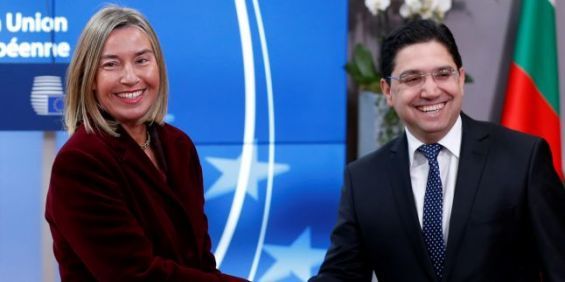One ruling, and two different interpretations, each party has claimed that it is the one winning this battle. A position hardly taken after a court judgment but very recurrent when it comes to politics. What should be noted from the decision of the Court of Justice of the European Union is at the bottom of the communiqué issued Tuesday :
«The Court therefore holds that, since neither the Fisheries Agreement nor the Protocol thereto are applicable to the waters adjacent to the territory of Western Sahara, the EU acts relating to their conclusion and implementation are valid».
The Polisario Front, which was celebrating on the same day the 42nd anniversary of the SADR’s creation, declared itself victorious, although the fisheries agreement was still considered valid. Morocco, on the other hand, reacted in a more toned down way. «This decision is similar to the one regarding the agricultural agreement concluded between Morocco and the European Union», said Aziz Akhannouch, Minister of Agriculture and Fisheries. Nasser Bourita, Minister of Foreign Affairs and International Cooperation, told Yabiladi with satisfaction that «the Court did not consider the Advocate General’s statements» which called for the suspension of the fisheries agreement.
Morocco-EU vs. the Polisario and its allies
But the Polisario is not willing to stop there. Indeed, M’Hamed Khadad, the Polisario coordinator with MINURSO, urged all EU vessels operating in the area «to withdraw immediately from the territorial waters of Western Sahara», said the Front’s news agency. A more aggressive tone adopted this time by the separatist movement, knowing that it had seen its appeal rejected in December 2016 by the same court for «lack of standing». What Nasser Bourita stressed on when speaking to Yabiladi is that «nothing in the ruling undermines the legal capacity of Morocco to conclude international agreements, contrary to what the Polisario and Algeria want us to believe».
The Moroccan Foreign Minister highlighted the joint Morocco-EU communiqué, which is a strong political message addressed to the Polisario. He stressed that the problem is between Morocco and the EU on the one hand, and the Polisario and Algeria on the other, indicating that the reason behind this situation is purely political. He also sees in this joint statement a sign of solidarity for the agreement that brings together Morocco and the European Union.
Towards a new fisheries agreement
Although the CJEU ruled that the agreement is valid, it emphasized the fact that it is not applicable to the territorial waters of Western Sahara. The agreement expected to expire in July 2018 must therefore be subject to further negotiations.
For the Minister of Agriculture and Fisheries, «we will have to adapt the necessary tools to be in phase with the Court’s decision». And for the first time, the Sahara will be considered in the agreement to include adjacent waters. We are therefore moving towards a new fisheries agreement, which will be based on the same legal precautions considered by the agricultural agreement. To put it in other words, elected representatives from the Sahara will have to participate to it alongside the two houses of the Moroccan parliament.
For the record, signing the document strengthening partnership linked to the agricultural agreement concluded between Morocco and the European Union with the presence of elected Sahrawis had provoked at the time the Polisario. Stung by this, the separatist movement’s lawyer claimed that the European Union should pay 240 million Euros to the Polisario «for exploiting the natural resources of the Saharawi people».





 chargement...
chargement...













